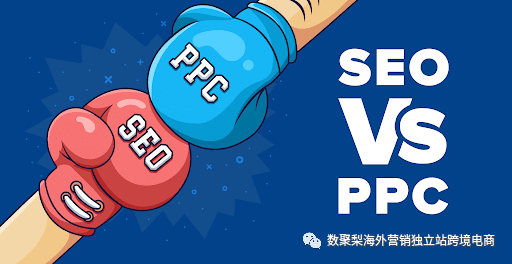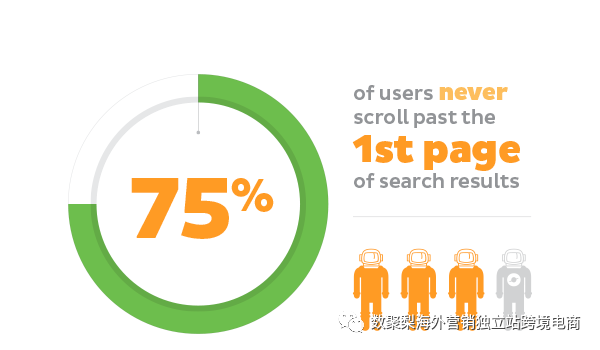SEO and PPC: Which should you focus on first?

If you're just starting your marketing campaign and want to get results quickly, you want to get the most out of it. You want to make sure that the time and money you invest brings a lot of high-quality traffic that can be converted. In other words, you want an absolute return on investment. Although you can take a number of different approaches, it often boils down to one of two options: SEO or PPC.
seo vs ppc
Both are proven to attract targeted potential customers. But which option is best for your campaign? More importantly, which one should you focus on first? In this article, I'll focus on the pros and cons of each option based on my personal experience. Finally, you should decide which way to go.
By number
So far, I'm sure you know I'm a big believer in statistics and data. When I stand out emotionally and look at numbers simply, I tend to make better choices.
2017 SEO Statistics
93% of online experiences start with search engines
Clicking on 70% of the search results is a natural search result
14.6% of all SEO leads are closed (and only 1.7% of outbound leads)
Google does more than a trillion searches a year
Eighty-nine percent of marketers said SEO was a success
2017 PPC Stats
PPC visitors are 50% more likely to buy than natural visitors
Sixty-five percent of all high-interest searches resulted in ad clicks
Search ads increase brand awareness by 80%
Thirty-two percent of companies use PPC to sell products directly to consumers
On average, businesses earn $3 for every $1.60 they spend on AdWords.
Both strategies bring impressive numbers. If you plan and execute your campaign correctly, you will get qualified leads, and a reasonable number of those leads will change. Although the results are basically the same, the way you get to your destination is completely different, depending on the path you take. Now, let's review the pros and cons.
The advantages of SEO
Perhaps the biggest reason marketers choose SEO over PPC is its cost-effectiveness. Most importantly, using PPC to pay for traffic is much higher than using SEO, especially in the case of internal processing. To get your PPC campaign up and running, you need to spend a significant budget. Also, if you're new to advertising, you'll have to deal with its inherent learning curve, which means it may take some time to get CPA and ROI up to the level you want. SEO is much cheaper and involves more time investing than financial investments. If your marketing budget is small, SEO may be your only option. Another benefit is that marketers tend to get long-term results. Note that SEO starts slowly initially, but grows dramatically over time. This makes SEO far more sustainable than PPC and has the potential to bring high-quality organic flow over the next few years. Finally, with SEO, you may get a higher return on investment.
Think about it. Every click you get through the PPC costs. The only way you can increase site visits is to pay for it. Inevitably, this will reduce your return on investment. But with SEO, you can almost profit directly. Because you get traffic naturally, the rate of return is bound to be higher. Even if you're "out of trouble," you'll still attract traffic to your site. This basically means free traffic.
The advantages of PPC
The biggest benefit of putting your hands down is the immediate surge in traffic you often get. Start now and you can bring qualified, ready-to-buy prospects. Even better, you can target keywords specifically based on your purchase intentions. This makes it ideal for new businesses with few brand assets. PPC can help you quickly attract traffic and increase brand awareness. If you want near-instant results and have no room to wait, PPC is your best choice. Another advantage is the conversion rate. While you may end up spending more money, paid search results are 1.5 times more likely to convert. This makes sense considering that advertisers can customize and optimize their ads and target high-interest keywords. I also believe that there are more PPC opportunities today than in previous years. While Google AdWords owns and continues to have the largest share of the business (almost 80% of companies focus on Google for PPC), there are plenty of other options. Bing Ads, for example, is becoming popular, while social networks such as Facebook and Twitter offer paid ads. Best of all, you won't be bothered by AdWords.
The disadvantages of SEO
To be fair, not all puppies and rainbows exist all the time. One of the biggest complaints from marketers about SEO is the volatility of search engine algorithms. In fact," says 40% of marketers, algorithmic changes are the biggest challenge facing SEO. "Major updates such as Panda and Penguin have wreaked havoc on SERP over the years, and many marketers have felt the negative impact. It is therefore important to note that SEO is not a once-and-for-all strategy. It requires a lot of maintenance and you need to be up-to-date on trends. Just thinking of ugly fines is enough to confuse many SEO marketers. Recently, with Google's "Fred" update, visits to some websites have dropped by 90%. Don't scare you, but even if you have the best intentions, you may be punished and never fantasize about any Black Hat SEO strategy. The best way to keep your website secure is to always follow ethical, white hat techniques and focus on creating the best possible content, rather than trying to take advantage of the next big thing in SEO. I also recommend keeping up-to-date information about SEO trends, especially with major algorithms.
It takes time to see the results. If patience is not your strength, you may find the SEO process very frustrating. This is not a strategy at all to make significant progress overnight. I don't care how much epic backlinks you go through, how many epic backlinks you can generate, or how much instant miracle you can expect. Simply letting Google index your content can take a lot of time. It's hard to say exactly how long it will take, but I've heard that it can take up to four weeks for Google to index new content. And it can take months to really make a real impact, so you have to be involved for a long time to make SEO thrive. Getting to the first page is no guarantee
What are the main goals of SEO marketers?
Get the content of the target keyword phrase on the first page. That's the name of the game. But it is clearly harder than there is no guarantee. Even if you do everything right, there are almost countless factors that determine where your content is in SERP. Not being able to reach the first page is frustrating because it's almost invisible. Considering that "75% of users never scroll to the first page," you won't attract traffic if your content doesn't meet the requirements.

If you want to quickly see the ranking of various keywords, check the steps below.
Go to SEMrush.
Enter your URL.
Click to start now.
Scroll down to Top Organic Keywords and click View Full Report.
Check the location of your ranked keywords
The disadvantages of PPC
I've already mentioned that PPC has a high upfront cost. This is usually the biggest problem for marketers. And the fear is that the cost of PPC is increasing. As more and more marketers compete for traffic, most platforms inevitably raise prices. Google AdWords can be particularly cruel. In some cases, you spend more on traffic than you earn from sales. If you're a start-up with a limited budget, PPC may not exist at all from a cost perspective.
Optimizing your ads can be difficult and time-consuming. That's not to say you can run some ads on the PPC platform and get a lot of highly targeted clicks right now. It takes time to learn the basics only. Optimize your ads to minimize cost-per-click and increase click-through rates. Even for experienced marketers, it's a pretty tough process. This means you may spend more money until you have everything.
When your campaign ends, traffic stops. That's really the reality. The second second you stop investing in pPC advertising campaigns, traffic is zero. Of course, this means that you will also get zero sales from the PPC, which is definitely worth pondering. While other marketing strategies (e.g. SEO, social media, content marketing, etc.) need to be maintained and maintained, they should still attract traffic to your site even if you take a break. Unfortunately, this is not the case with PPC. In order to maintain traffic and leads, you must constantly "be confused" and put money into your campaign.
Check all angles
So far, I've introduced the advantages, disadvantages and shortcomings of SEO and PPC. Like any other field of marketing, each has its advantages and disadvantages. Before you choose any of them, look carefully at all angles to find out which strategy is best for your short- and long-term needs. If you have a small budget, PPC may not be possible, so SEO is the obvious choice. In this case, invest time, not money, in your marketing campaign. It's not easy, but over time, you should end up seeing a decent return on investment and it might look like this:
You are looking for long-term sustainability
It takes a lot of effort at first, but once it's put into use, it's going to continue to grow. After a while, this was a force to be reckoned with. For me, it's worth the effort. As your campaign grows and your optimized content archive grows, so does your traffic, leads, and sales. Sticking to SEO has enabled me to attract a lot of traffic and highly expected keywords like "content marketing." Reasonable SEO practice helped me even surpass Wikipedia in this word.
To improve your site's SEO ranking, buy a Google Optimization package with a few pears, ask me for a microsalt bumgenius, or a few pears Taobao store to buy https://tabpear.taobao.com/
Scan QR code WeChat consulting immediately

Go to "Discovery" - "Take a look" browse "Friends are watching"